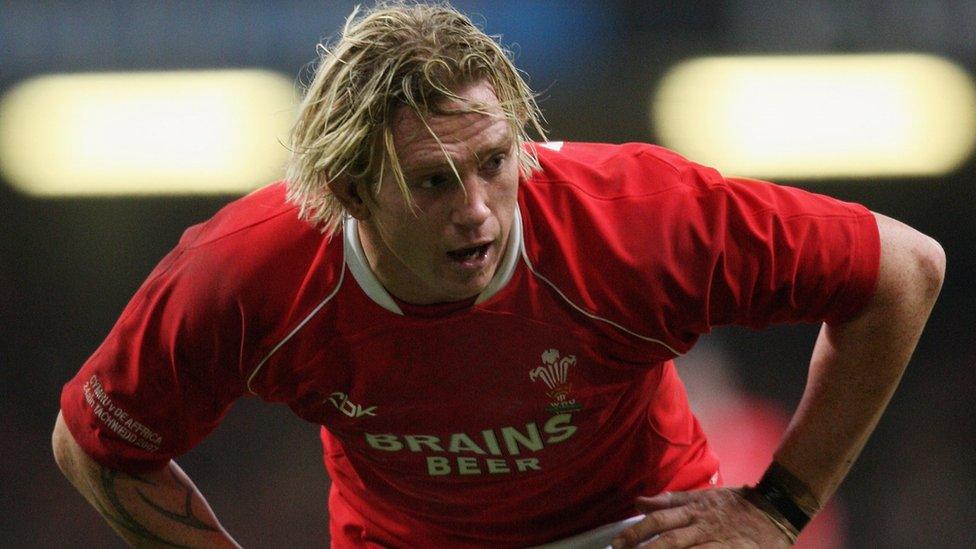Dementia: Ex-Wales rugby star fears not recognising his children
- Published
Lenny Woodard's son accidentally discovered his dad has dementia
A former rugby international fears he won't recognise his children in five years because of early onset dementia.
Lenny Woodard believes rugby caused his dementia.
On Monday he, ex-captain Ryan Jones and 180 others intend to issue formal proceedings against World Rugby, the Welsh Rugby Union (WRU) and the Rugby Football Union (RFU).
World Rugby, the WRU and RFU said they could not comment on any case as no legal proceedings had been received.
However, in a joint statement, they said they cared deeply about all players and had strategies to prevent, identify and manage head injuries.
London-based law firm Rylands Legal is representing the claimants, arguing rugby's governing bodies failed to take reasonable action to protect players from permanent injury caused by "repetitive concussive and sub-concussive blows".
The firm said it was the biggest class action of its kind outside the United States, where the NFL has paid more than £664m to date to former players who developed dementia or concussion-related problems.
"This claim isn't just about financial compensation," Rylands said in a statement. "It is also about making the game safer and ensuring current and former players get tested so that if they are suffering a brain injury they can get the clinical help they need."
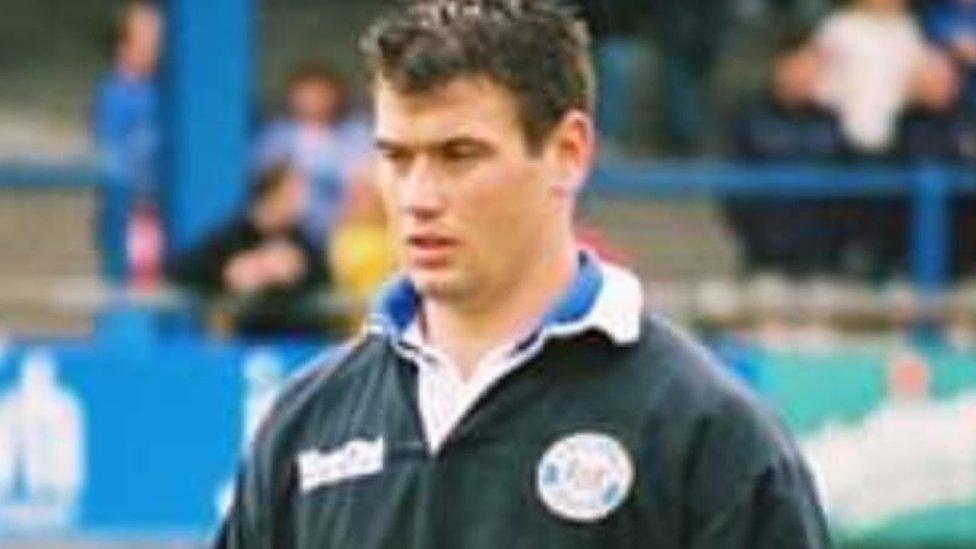
Lenny Woodward said he had his first concussion from rugby when he was 11
Former dual-code pro Mr Woodard played rugby union for Pontypool, Ebbw Vale and Pontypridd, and although not capped for Wales he played on their 1998 tour to South Africa and won five caps for the Wales rugby league team.
He said others have not yet spoken about their condition as they cannot face telling their families.
The dad-of-five said he first suffered a concussion aged 11.
The 45-year-old said: "The stark reality of being diagnosed with early onset dementia in your 40s, with young children, means in five years, 10 years, 15 years time we might not know who they are."
He recounted discussing the matter with his partner as his children played in the next room.
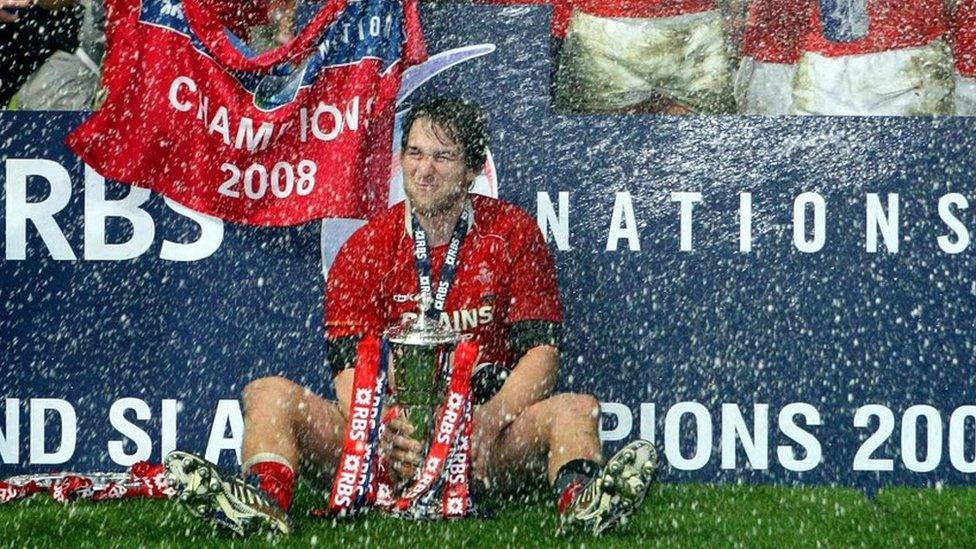
Ryan Jones, who said he lived liked a superhero for 15 years, is also among those intending to issue formal proceedings
He said: "My partner was explaining, 'I want the kids to see you as much as possible, as often as possible and do as many memorable things as possible because there is a chance in 10 years, 15 years time you're not even going to know who they are.'
His nine-year-old son, Leo, overheard the conversation.
"He burst into tears, ran into the room, hugged me and would not let go of me for a few minutes," he said.
Pontypridd-born Mr Woodard, who was diagnosed last year, said he was aware of others in the game in a similar situation to himself.
He said: "The reason they haven't gone public with it is because they're struggling to tell their children, wives, family."
When speaking to other players he has assured them they are not alone.
And he warned: "There's going to be more."
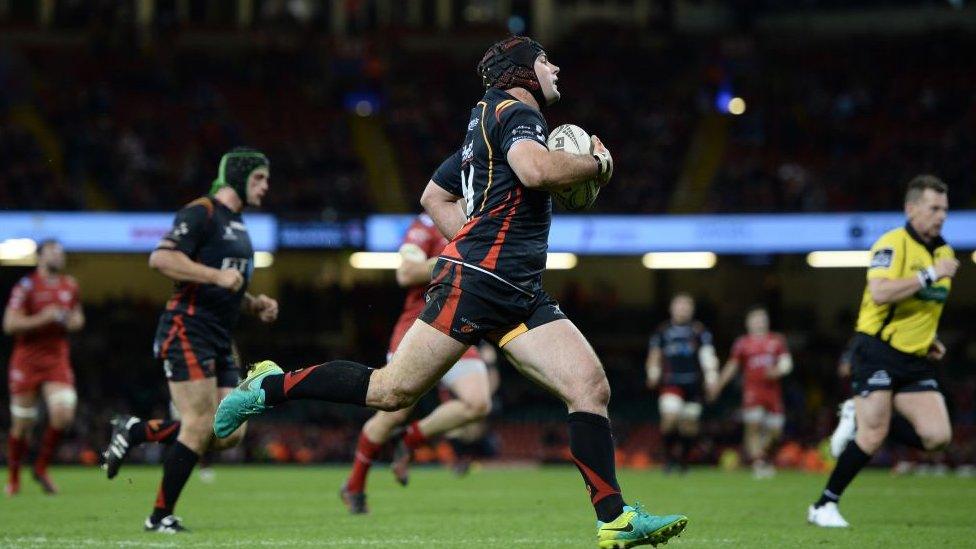
On Monday 180 former rugby players, including Adam Hughes, are to begin proceedings against the rugby authorities
It was hard to tell people who had played at the sport's top level what lay ahead.
"Unfortunately the game is going to take away their enjoyment of their later life," he said.
Mr Woodard said he had gone from having "perfect" recollection to regularly repeating himself.
"My memory, my thought processes, are declining gradually and I can see that," he said.
"I was diagnosed a year ago and I can see it has got worse over the last year.
"I'm hoping to slow that acceleration as much as possible. I often forget journeys at crucial stages within it, repeat myself in conversations, repeat myself half-an-hour later, an hour later, forget conversations, things I've done in the past completely now.
"Whereas five years, 10 years ago I had what I would class as a perfect recollection of things."
Also part of the legal action is former Dragons and Wales under-20s player, Adam Hughes.
A "complete culture change" was needed in rugby, the 32-year-old said.
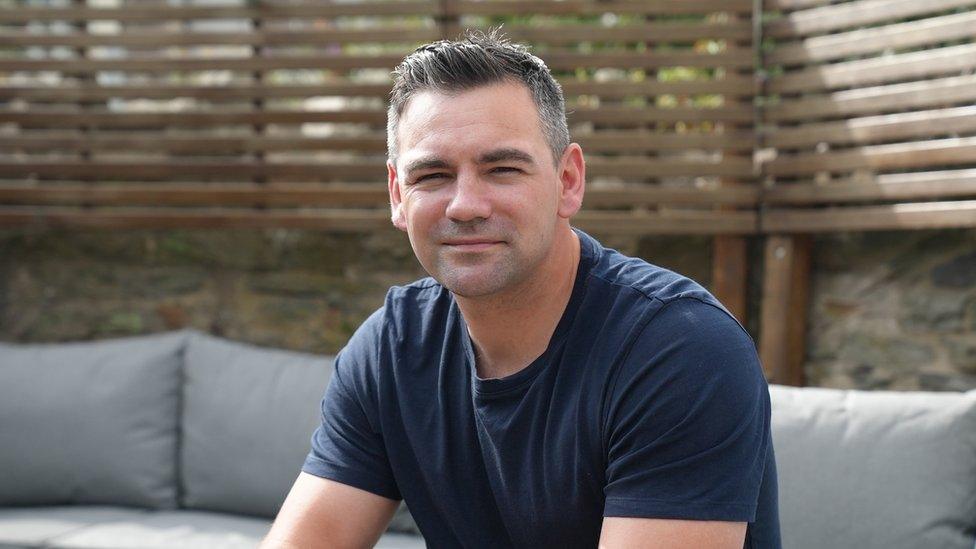
Adam Hughes said he knew of pros and ams who believed they had brain damage symptoms but played on
Mr Hughes added that he knew of professionals and amateurs who believed they had symptoms of brain damage but were still playing.
"Some people don't want to believe it, they don't want to know that they've got issues, because that scares them, other people would rather not know they've got it because they want to continue playing," he said.
Both Mr Woodard and Mr Hughes want the minimum rest period for concussed players to be extended to 3-4 weeks.
Now a financial advice company boss, Mr Hughes said current players needed other employment options, so they don't have to keep playing.
He said: "Unfortunately rugby is the only thing they can do at this present time."
Progressive Rugby, a non-profit group demanding better protection for players, is not involved in the court action, but said it was in the process of "finalising a comprehensive list of player welfare critical requirements" to submit to World Rugby.
"We believe delay is no longer an option and that radical action must be taken as a matter of urgency to ensure rugby union's reputation isn't damaged beyond repair," they said.

What are rugby's bosses accused of?
Lawyers representing the ex-players say the rugby authorities:
Failed to take proper steps to pay attention to player safety and brain health, when the game became professional
Did not do enough to warn players about the risks of brain damage
Neglected to cut contact in training
Should have reduced the number of matches played
Cut concussed players rest time instead of extending it
Declined to get or follow advice on permanent brain injury risk
Ignored evidence concussions may not be immediately apparent and carried out inadequate assessments during games
Omitted to make rules limiting substitutions which could make players smaller

Former Wales international, Alix Popham, was diagnosed with early onset dementia in 2020 at the age of 40.
The Newport-born flanker, who had 33 caps for Wales, started to forget people's names, or lose track of a conversation.
"I went on a bike ride, it's a loop I've done from my house over a hundred times, got lost, and came back pretty shook up," he said.
His doctor believes he had more than 100,000 sub-concussions in his career.
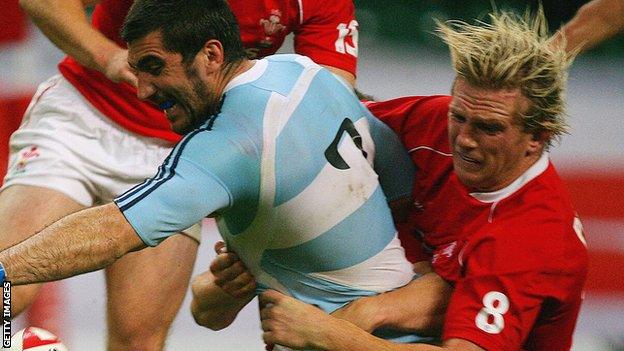
Alix Popham (right) had a 14-year professional career
"Sub-concussive hits are the silent killer where every contact not necessarily to the head is causing some sort of damage to the brain," he said. "With rugby, your body's hit all the time and your head will fly back, which then causes damage to the brain."
His doctor has set up a 10-year management plan, getting him to do regular tests and brain training.
Every day when we were doing contact sessions and we were seeing stars and had to have sniffing salts or spray water in your face to come round
"After that, who knows," he said. "I've got three daughters, Holly who's 18, Isabel 14 and Darcy who's just turned four so trying to be here as me for as long as possible is the plan."
Looking back, Popham said he would still have played rugby but would have rested more after being concussed.
"Every day when we were doing contact sessions and we were seeing stars and had to have sniffing salts or spray water in your face to come round," he recalled. "They were traumatic brain injuries causing damage and I needed the correct rest to give my brain that time to heal.
"That's what current players are still not doing," he said, saying when he speaks to those players, "nobody is sticking to those current guidelines."
In a joint statement issued to the BBC World Rugby, RFU and WRU said: "We care deeply about all our players, including former players, and never stand still when it comes to welfare.
"Our strategies to prevent, identify and manage head injuries are driven by a passion to safeguard our players and founded on the latest science, evidence and independent expert guidance."
Related topics
- Attribution
- Published9 December 2021

- Attribution
- Published23 April 2022
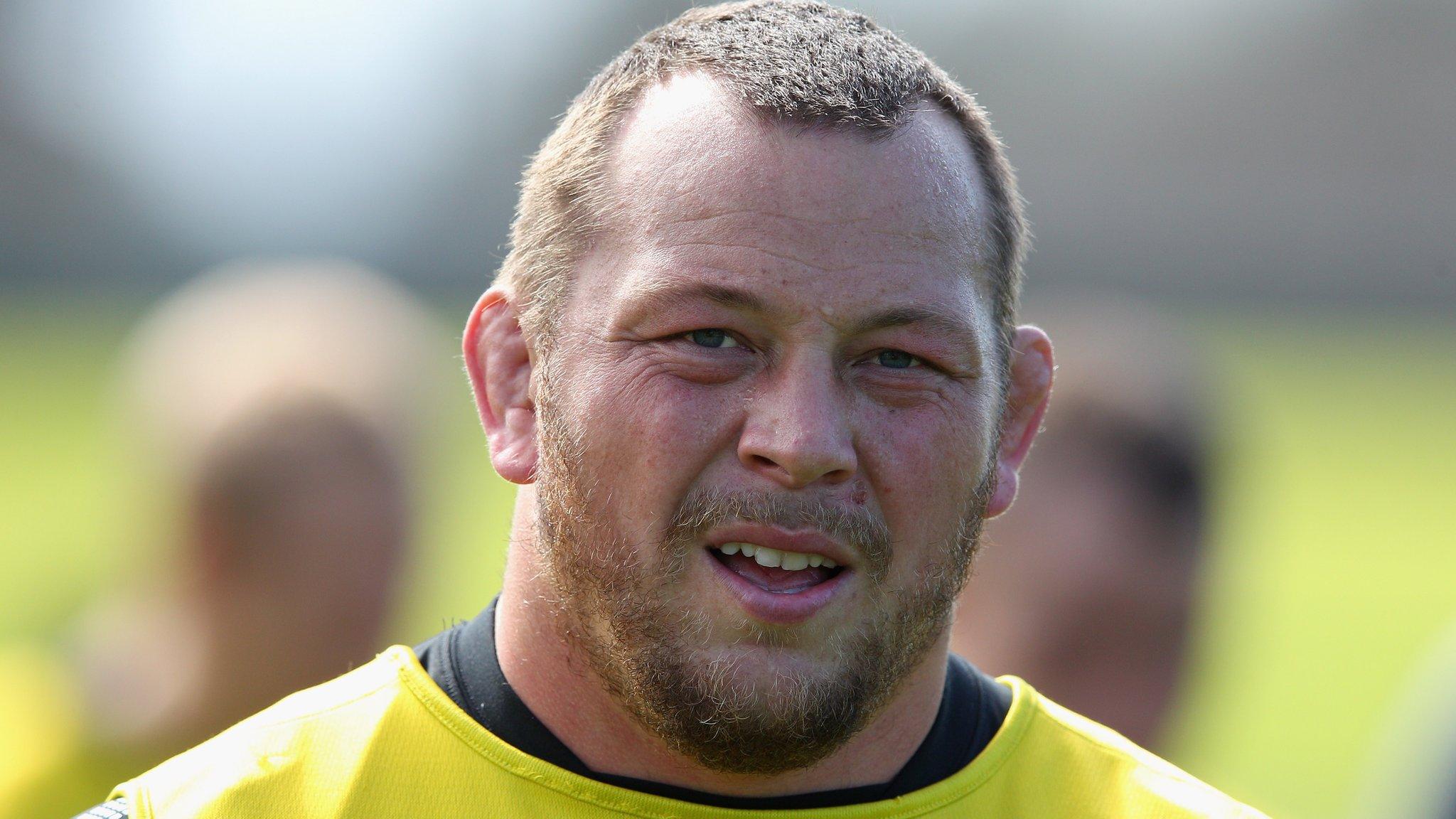
- Attribution
- Published8 December 2020

- Attribution
- Published18 December 2020
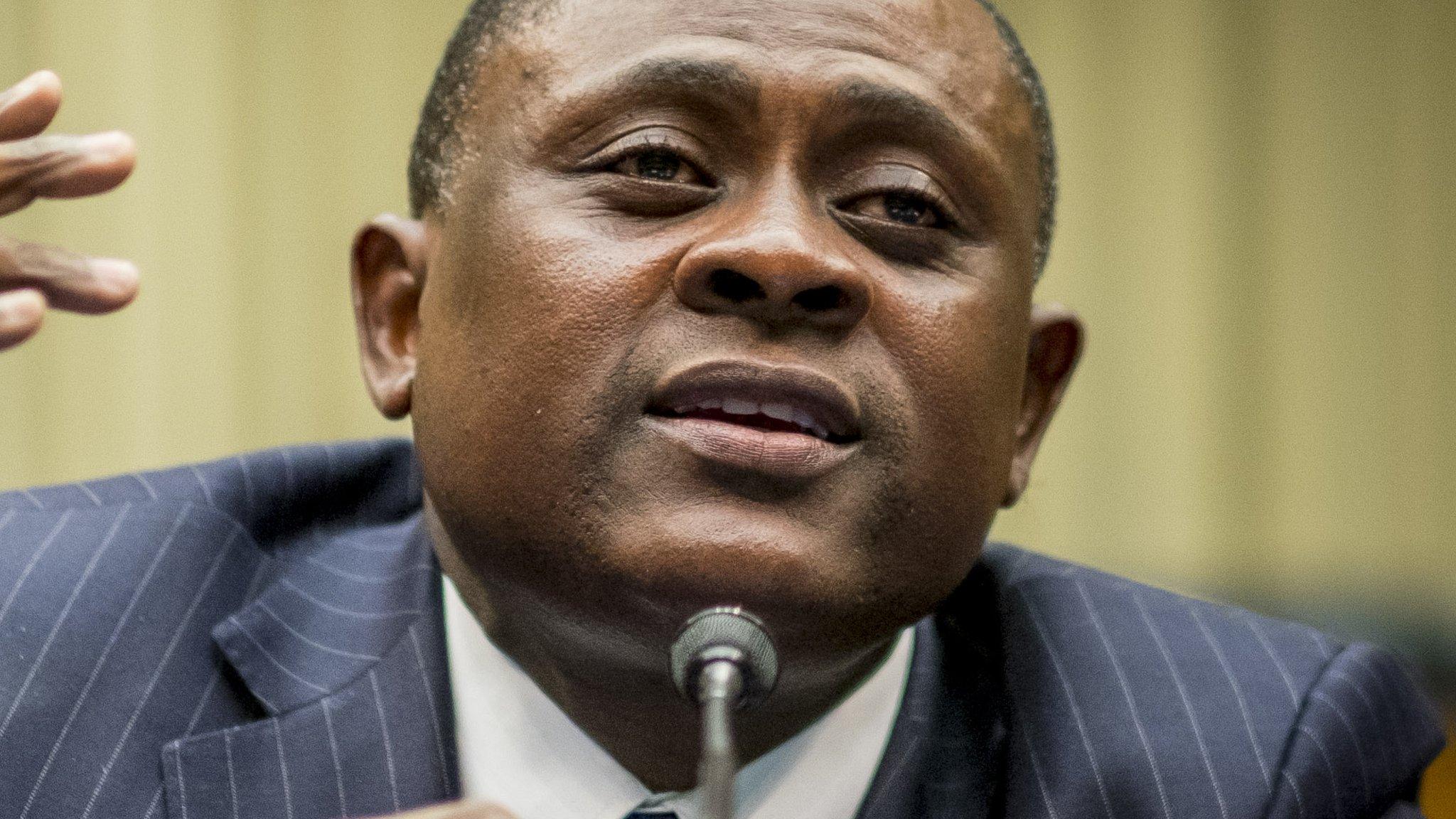
- Attribution
- Published7 December 2021
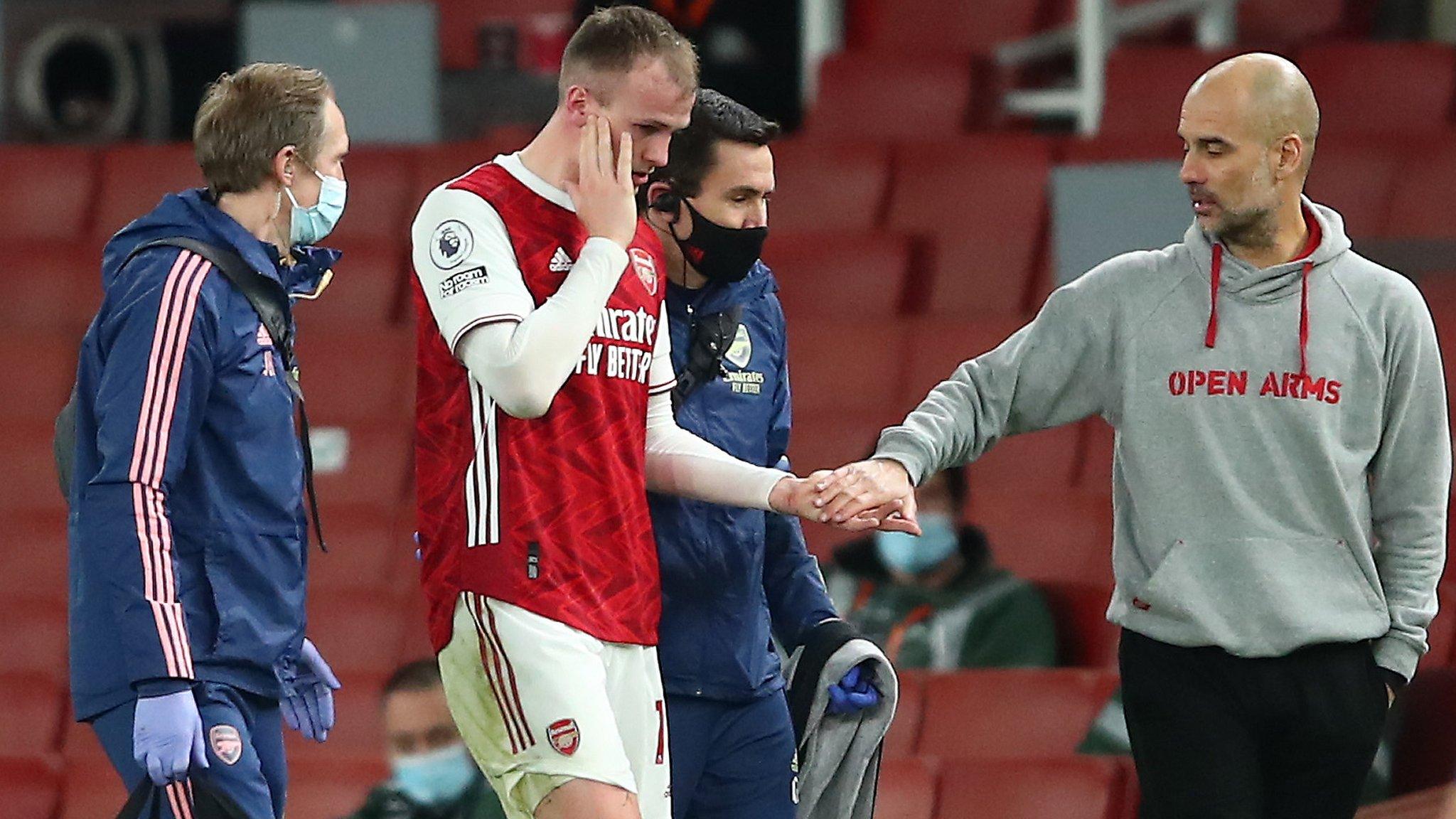
- Published17 May 2021
